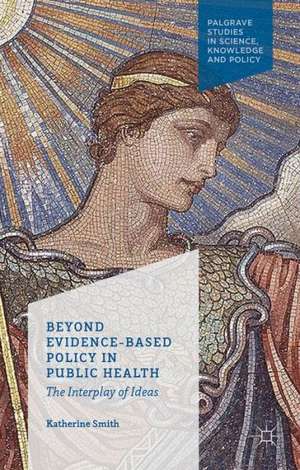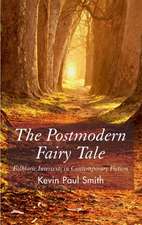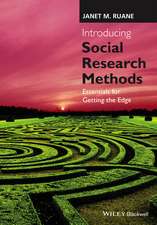Beyond Evidence Based Policy in Public Health: The Interplay of Ideas: Palgrave Studies in Science, Knowledge and Policy
Autor K. Smithen Limba Engleză Hardback – 10 oct 2013
| Toate formatele și edițiile | Preț | Express |
|---|---|---|
| Paperback (1) | 330.28 lei 3-5 săpt. | +16.61 lei 7-13 zile |
| Palgrave Macmillan UK – 2013 | 330.28 lei 3-5 săpt. | +16.61 lei 7-13 zile |
| Hardback (1) | 700.61 lei 6-8 săpt. | |
| Palgrave Macmillan UK – 10 oct 2013 | 700.61 lei 6-8 săpt. |
Preț: 700.61 lei
Preț vechi: 824.25 lei
-15% Nou
Puncte Express: 1051
Preț estimativ în valută:
134.06€ • 139.97$ • 110.95£
134.06€ • 139.97$ • 110.95£
Carte tipărită la comandă
Livrare economică 04-18 aprilie
Preluare comenzi: 021 569.72.76
Specificații
ISBN-13: 9781137026576
ISBN-10: 113702657X
Pagini: 251
Ilustrații: XVII, 251 p.
Dimensiuni: 140 x 216 x 23 mm
Greutate: 0.52 kg
Ediția:2013
Editura: Palgrave Macmillan UK
Colecția Palgrave Macmillan
Seria Palgrave Studies in Science, Knowledge and Policy
Locul publicării:London, United Kingdom
ISBN-10: 113702657X
Pagini: 251
Ilustrații: XVII, 251 p.
Dimensiuni: 140 x 216 x 23 mm
Greutate: 0.52 kg
Ediția:2013
Editura: Palgrave Macmillan UK
Colecția Palgrave Macmillan
Seria Palgrave Studies in Science, Knowledge and Policy
Locul publicării:London, United Kingdom
Cuprins
1. The Fluctuating Fortunes of 'Evidence-Based Policy' 2. Evidence-Informed Policy in Public Health 3. The Power of Ideas (over evidence) 4. Institutionalised Ideas and Policy Facilitators 5. Critical/Charismatic Ideas and Advocates 6. Chameleonic Ideas and Flexian Policy Actors 7. Institutional Amnesia and the Rise of Public Health Knowledge Brokers 8. Politics and Advocacy in Public Health – The Way Forward
Recenzii
"Katherine Smith offers an insightful analysis of evidence-based policy, providing an interesting typology with which to deepen our exploration of the relationship between research and policy . . . a rare books which captures the reader, inviting self-reflection upon how one can engage with research either as an academic, an advocate, or policymaker, and their own research." - LSE Review of Books
"Research reports often end with recommendations for what 'policy makers' should do. Clearly, linking research and policy (and practice) is vital, but we often seem to over-simplify the relationships between them. This recently published book by Katherine Smith is a fascinating read because it tackles this issue using two case studies which are at the heart of public health work: health inequalities and tobacco control . . . Smith does an admirable job of showing the significance of ideas and politics whilst upholding the principle that research has value for policy . . . an accessible, evidence-based discussion of the complexities of the two-way relationship between research and policy." - DECIPHer
"What we have here is an excellent source of evidence about the relationship between research evidence and policymaking in the field of public health. This book undermines any suggestion that we live in an age of evidencebased policymaking, and indeed raises questions about the character and viability of that ideal." - Professor Martin Hammersley, Sociology of Health and Illness
"This is a rich and sophisticated analysis of the overlapping worlds of evidence creation, evidence mediation and policy making. Seemingly effortlessly, the two fine-grained case studies in all their singularity are related to other cases and contexts, and to the previous empirical and conceptual literature. There is no doubt that this book contributes immensely to improving
understanding of the nature of the contribution of evidence in public health policy in the UK in the early twenty-first century and, because of its theoretical contribution, more widely." - Nick Mays, Journal of Social Policy
'Smith argues that what matters for public health policy is less scientific evidence and much more a more complex set of ideas. Based on detailed case studies of UK tobacco and health inequality policy, Smith offers a richly textured alternative account of what matters for policy making. This excellent book is part of a small but growing body of political science research on public health policy that draws on contemporary theories of policy change and governance more generally.' - Patrick Fafard, Journal of Epidemiology and Community Health
"Research reports often end with recommendations for what 'policy makers' should do. Clearly, linking research and policy (and practice) is vital, but we often seem to over-simplify the relationships between them. This recently published book by Katherine Smith is a fascinating read because it tackles this issue using two case studies which are at the heart of public health work: health inequalities and tobacco control . . . Smith does an admirable job of showing the significance of ideas and politics whilst upholding the principle that research has value for policy . . . an accessible, evidence-based discussion of the complexities of the two-way relationship between research and policy." - DECIPHer
"What we have here is an excellent source of evidence about the relationship between research evidence and policymaking in the field of public health. This book undermines any suggestion that we live in an age of evidencebased policymaking, and indeed raises questions about the character and viability of that ideal." - Professor Martin Hammersley, Sociology of Health and Illness
"This is a rich and sophisticated analysis of the overlapping worlds of evidence creation, evidence mediation and policy making. Seemingly effortlessly, the two fine-grained case studies in all their singularity are related to other cases and contexts, and to the previous empirical and conceptual literature. There is no doubt that this book contributes immensely to improving
understanding of the nature of the contribution of evidence in public health policy in the UK in the early twenty-first century and, because of its theoretical contribution, more widely." - Nick Mays, Journal of Social Policy
'Smith argues that what matters for public health policy is less scientific evidence and much more a more complex set of ideas. Based on detailed case studies of UK tobacco and health inequality policy, Smith offers a richly textured alternative account of what matters for policy making. This excellent book is part of a small but growing body of political science research on public health policy that draws on contemporary theories of policy change and governance more generally.' - Patrick Fafard, Journal of Epidemiology and Community Health
Notă biografică
Katherine Smith is Reader in the Global Public Health Unit, University of Edinburgh, UK. Her research interests include health inequalities, policy change and the influence of private and third sector organisations on policy.























